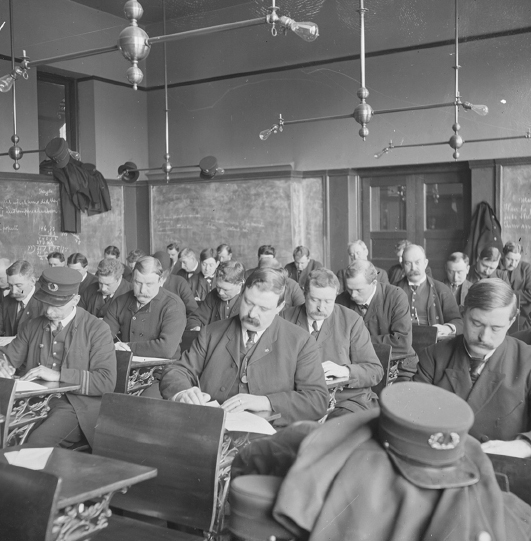What issues shaped party politics in the late nineteenth century?
Printed Page 534

Figure false: Civil Service Exam
Figure false: In this 1890s photograph, prospective police officers in Chicago take the written civil service exam. Civil service meant that politicians and party bosses could no longer use jobs in the government to reward the party faithful. Chicago Historical Society.
THE PRESIDENTS OF THE GILDED AGE, from Rutherford B. Hayes (1877–1881) to William McKinley (1897–1901), are largely forgotten men, primarily because so little was expected of them. The dominant creed of laissez-faire, coupled with the dictates of social Darwinism, warned the president and the government to leave business alone. Still, presidents in the Gilded Age grappled with corruption and party strife, and they struggled toward the creation of new political ethics designed to replace patronage with a civil service system that promised to award jobs on the basis of merit, not party loyalty.
CHRONOLOGY
1880
- – James A. Garfield is elected president.
1881
- – Garfield is assassinated; Vice President Chester A. Arthur becomes president.
1883
- – Pendleton Civil Service Act.
1884
- – Grover Cleveland is elected president.